|

Image: HRAS / FIS
New Falklands Fisheries Patrol Vessel (FPV) LILIBET to Impact Crime and Abuse at Sea
 (FALKLAND ISLANDS, 5/8/2023)
(FALKLAND ISLANDS, 5/8/2023)
The next generation of Falkland Islands fisheries protection vessel aims increasingly to target Illegal, Unreported and Unregulated (IUU) fishing and associated criminal activities in the island’s coastal waters and Economic Exclusion Zone (EEZ).
As part of the Falkland Islands Government (FIG) strategy continually to develop its monitoring, interdiction, boarding and ocean governance role, the introduction of new capabilities and onboard technologies raises the stakes for all vessels conducting improper or illegal operations in the coastal state’s waters.
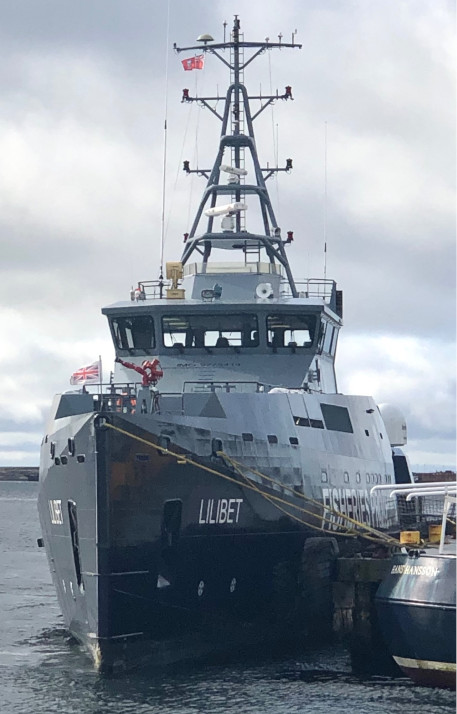
Photo: Falklands Government --->
FIG invited expressions of interest to replace the FPV PROTEGAT in Autumn 2021 for a 15-year charter.
At the end of January 2022, the tender was won by Seagull Maritime Ltd, the UK-incorporated entity that owns Seagull Security, a leading provider of maritime security services focused on the piracy risk areas of the Indian Ocean, Red Sea and West African coast.
Larus Dominicanus (the Latin name for the common Falklands Kelp Gull) Ltd, a Falklands incorporated company has now been established under Seagull Maritime Ltd, with Colonel Mark Gray MBE at its head and responsible for delivery of daily operations under the charter.
At the time of writing, the handover between the previous fisheries patrol vessel PROTEGAT a former local fishing vessel, and the new Damen Shipbuilding Dutch-designed, Vietnamese-built (2022) and UK-registered LILIBET has been completed, with the first patrol being conducted as FPV LILIBET took over duties on 1 May 2023.
Deterrence
The existence of such a new enforcement vessel capability will create a deterrent effect, and at the very least, make individuals think twice about unlawful activities noting the available sanctions by FIG of vessel arrest, detention, fines, suspensions or bans.
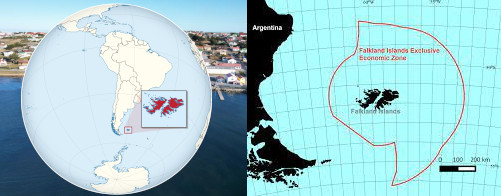
Source: Wiki / The Darwin Initiative / FIS
In a commercially competitive environment with foreign flag and coastal state interests being inextricably linked to maritime trade, ocean governance and natural resource protection, unlawful activities in Falkland Islands waters must be policed, with consequences for those who choose to break the law, or their licence conditions.
Dr Andrea Clausen, Director of Natural Resources states “the deployment of FPV Lilibet into the Falkland Fishery marks a step change in capability for control and enforcement as well as SAR for the Falkland Islands Government. We are happy to be working with Larus dominicanus Ltd, the vessel owner, whose team bring a wealth of maritime security and surveillance expertise to the table, this combined with the capabilities of the new vessel, will ensure FIG are able to have a more robust stance in this vital area of our business”.
(2).jpg)
About
During sea trials LILIBET achieved 28 knot speeds and has a required endurance of 30 days. Sixty days’ provisions can be carried and patrolling at 10 knots could be undertaken for 42 days with a range of 10,000 nm.
The vessel has high bandwidth communications infrastructure, so that Fisheries Officers on board have full access to the necessary tools they use in Fisheries Operations controlled from Stanley. It is fitted for 0.5” Heavy Machine Gun mounts port and starboard and can embark Falkland Islands Defence Force (FIDF) troops with a heavy machine gun, though routinely FPV LILIBET patrols unarmed.
The vessel has a secondary role as a search and rescue (SAR) vessel and is fitted with a 2 tonnes per minute fire monitor, rescue nets, stretchers, a helicopter winching deck and 10 additional overspill bunks, as well as the capability to fast-dash anywhere inside the Falkland’s EEZ. Additionally, FPV Lilibet has a heavy-duty MST 750SR “Stern ramp” RIB which is capable of a maximum speed of 38 knots and can carry up to 10 persons.
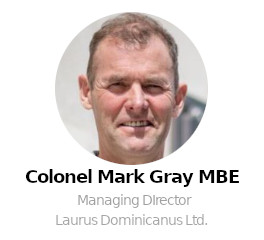
FPV LILIBET will also patrol up to the Blue Hole - an area well to the north of the EEZ on the high seas, where an international fleet of some 500-600 vessel jigs for squid seasonally. While she has no jurisdiction (other than over Falklands-flagged vessels), she will gather intelligence and report to the competent authorities.
Proven Capabilities
The delivery voyage from Vietnam and Cape Town saw LILIBET encounter Atlantic storms that demasted Ian Herbert-Jones’ yacht Puffin with winds over 50 knots, gusting 70, and a severe sea state while taking part in the Golden Globe Race.
On her way to the Falklands, LILIBET was diverted to Puffin’s rescue, manoeuvring her way through 90 knot winds and 7-8m waves for 36 hrs before being stood down, with the solo sailor later rescued by a Falklands-licensed, Taiwanese squid jigger fishing vessel Zi Da Wang.
Colonel Mark Gray MBE, Managing Director of Larus dominicanus Ltd, said: “LILIBET coped well and the axe-bow hull, specifically designed to cut through waves and reduce slamming was incredibly effective in the extreme conditions. She has proven herself.”
“The class of ship is an excellent, capable, value-for-money type of vessel that can operate in all seas and at speed. She is ideal for island nations for patrolling large EEZs and especially marine protected areas”.
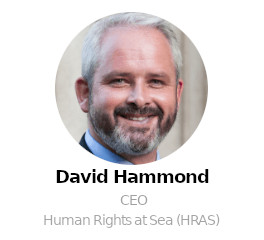
The name of the vessel was chosen by schoolchild, Aimee Walker in honour of the late Queen Elizabeth II following a competition at both Falkland Islands Schools in May 2022.
HRAS Comment
From a civil society perspective, the availability of a technologically advanced enforcement vessel that is capable of rapid interception and all weather boardings, is a powerful tool when seeking to reduce human rights abuse at sea.
Further, state-level identification and profiling of human rights abuse onboard vessels and associated remediation alongside reducing IUU exploitation of natural resources are the next logical steps in improving human rights protections at sea.
CEO, David Hammond commented from Port Stanley, “Having been onboard LILIBET, Human Rights at Sea will be watching the impact her activities have with keen interest, focusing on the potential for replication throughout British Overseas Territories and other small island developing states where we are working to tackle egregious abuse at sea.”
Source: Human Rights at Sea
Related News:
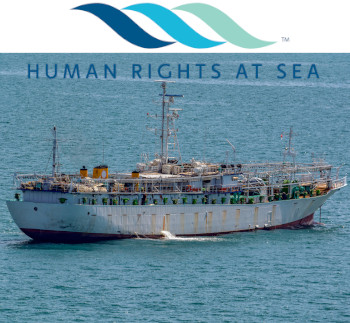
editorial@seafood.media
www.seafood.media
Information of the company:
|



